|
|
|
|
|
|
|
|
|
Award Number and Duration |
|
|
|
NSF DMS 2134223 (University of Utah) |
|
|
|
PI and Point of Contact |
|
|
|
Bei Wang (PI)
Yi Zhou (Co-PI)
Jie Ding (PI) |
|
|
|
Overview |
|
|
|
The past decade has witnessed the great success of deep learning in broad societal and commercial applications. However, conventional deep learning relies on fitting data with neural networks, which is known to produce models that lack resilience. For instance, models used in autonomous driving are vulnerable to malicious attacks, e.g., putting an art sticker on a stop sign can cause the model to classify it as a speed limit sign; models used in facial recognition are known to be biased toward people of a certain race or gender; models in healthcare can be hacked to reconstruct the identities of patients that are used in training those models. The next-generation deep learning paradigm needs to deliver resilient models that promote robustness to malicious attacks, fairness among users, and privacy preservation. This project aims to develop a comprehensive learning theory to enhance the model resilience of deep learning. The project will produce fast algorithms and new diagnostic tools for training, enhancing, visualizing, and interpreting model resilience, all of which can have broad research and societal significance. The research activities will also generate positive educational impacts on undergraduate and graduate students. The materials developed by this project will be integrated into courses on machine learning, statistics, and data visualization and will benefit interdisciplinary students majoring in electrical and computer engineering, statistics, mathematics, and computer science. The project will actively involve underrepresented students and integrate research with education for undergraduate and graduate students in STEM. It will also produce introductory materials for K-12 students to be used in engineering summer camps. |
|
|
|
Publications and Manuscripts |
|
|
|
Papers marked with * use alphabetic ordering of authors. Students are underlined. |
| Manuscripts | |

|
 Explainable Mapper: Charting LLM Embedding Spaces Using Perturbation-Based Explanation and Verification Agents.
Explainable Mapper: Charting LLM Embedding Spaces Using Perturbation-Based Explanation and Verification Agents.
Xinyuan Yan, Rita Sevastjanova, Sinie van der Ben, Mennatallah El-Assady, Bei Wang. Manuscript, 2025. arXiv:2507.18607 |

|
ChannelExplorer: Exploring Class Separability Through Activation Channel Visualization.
Rahat Zaman, Bei Wang, Paul Rosen. Manuscript, 2025. |

|
 Distillation versus Contrastive Learning: How to Train Your Rerankers.
Distillation versus Contrastive Learning: How to Train Your Rerankers.
Zhichao Xu, Zhiqi Huang, Shengyao Zhuang, Vivek Srikumar. Manuscript, 2025. arXiv:2507.08336 |

|
 A Survey of Model Architectures in Information Retrieval.
A Survey of Model Architectures in Information Retrieval.
Zhichao Xu, Fengran Mo, Zhiqi Huang, Crystina Zhang, Puxuan Yu, Bei Wang, Jimmy Lin, Vivek Srikumar. Manuscript, 2025. arXiv:2502.14822 |
| Year 4 (2024 - 2025) | |

|
 VISLIX: An XAI Framework for Validating Vision Models with Slice Discovery and Analysis.
VISLIX: An XAI Framework for Validating Vision Models with Slice Discovery and Analysis.
Xinyuan Yan, Xiwei Xuan, Jorge Piazentin Ono, Jiajing Guo, Vikram Mohanty, Shekar Arvind Kumar, Liang Gou, Bei Wang, Liu Ren. Eurographics Conference on Visualization (EuroVis), 2025. Supplement. Supplement Video. DOI:10.1111/cgf.70125 arXiv:2505.03132. |

|
 Structural Uncertainty Visualization of Morse Complexes for Time-Varying Data Prediction.
Structural Uncertainty Visualization of Morse Complexes for Time-Varying Data Prediction.
Weiran Lyu, Saumya Gupta, Chao Chen, Bei Wang. IEEE Workshop on Topological Data Analysis and Visualization (TopoInVis) at IEEE VIS, 2025. |

|
 State Space Models are Strong Text Rerankers.
State Space Models are Strong Text Rerankers.
Zhichao Xu, Jinghua Yan, Ashim Gupta, Vivek Srikumar. Proceedings of the 10th Workshop on Representation Learning for NLP (RepL4NLP 2025), 2025. DOI:10.18653/v1/2025.repl4nlp-1.12 arXiv:2412.14354 |

|
 Boosting One-Point Derivative-Free Online Optimization via Residual Feedback.
Boosting One-Point Derivative-Free Online Optimization via Residual Feedback.
Yan Zhang, Yi Zhou, Kaiyi Ji, Michael M. Zavlanos. IEEE Transactions on Automatic Control, 69(9), pages 6309-6316, 2024. DOI: 10.1109/TAC.2024.3382358 arXiv:2010.07378 |

|
 Non-Asymptotic Analysis for Single-Loop (Natural) Actor-Critic with Compatible Function Approximation.
Non-Asymptotic Analysis for Single-Loop (Natural) Actor-Critic with Compatible Function Approximation.
Yudan Wang, Yue Wang, Yi Zhou, Shaofeng Zou. Proceedings of the 41st International Conference on Machine Learning (ICML), 2024. arXiv:2406.01762 |

|
 Beyond Perplexity: Multi-dimensional Safety Evaluation of LLM Compression.
Beyond Perplexity: Multi-dimensional Safety Evaluation of LLM Compression.
Zhichao Xu, Ashim Gupta, Tao Li, Oliver Bentham and Vivek Srikumar. Findings of Empirical Methods in Natural Language Processing (EMNLP), 2024. DOI:10.18653/v1/2024.findings-emnlp.901 arXiv:2407.04965 |
| Year 3 (2023 - 2024) | |
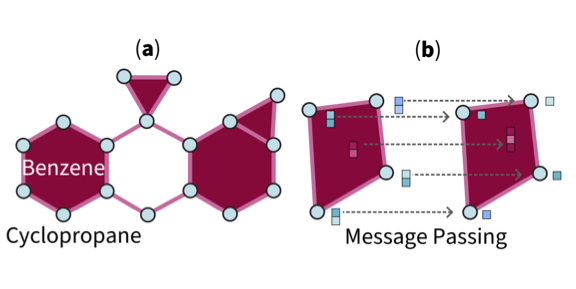
|
 Position: Topological Deep Learning is the New Frontier for Relational Learning.
Position: Topological Deep Learning is the New Frontier for Relational Learning.
Theodore Papamarkou, Tolga Birdal, Michael Bronstein, Gunnar Carlsson, Justin Curry, Yue Gao, Mustafa Hajij, Roland Kwitt, Pietro Lio, Paolo Di Lorenzo, Vasileios Maroulas, Nina Miolane, Farzana Nasrin, Karthikeyan Natesan Ramamurthy, Bastian Rieck, Simone Scardapane, Michael T. Schaub, Petar Velickovic, Bei Wang, Yusu Wang, Guo-Wei Wei, Ghada Zamzmi. Proceedings of the 41st International Conference on Machine Learning (ICML), 2024. arXiv:2402.08871 |

|
 Interpreting and generalizing deep learning in physics-based problems with functional linear models.
Interpreting and generalizing deep learning in physics-based problems with functional linear models.
Amirhossein Arzani, Lingxiao Yuan, Pania Newell, Bei Wang. Engineering with Computers, 2024. arXiv:2307.04569. |
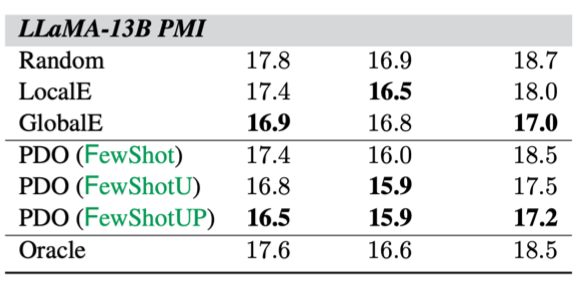
|
 In-Context Example Ordering Guided by Label Distributions.
In-Context Example Ordering Guided by Label Distributions.
Zhichao Xu, Daniel Cohen, Bei Wang, Vivek Srikumar. Annual Conference of the North American Chapter of the Association for Computational Linguistics (NAACL), 2024. arXiv:2402.11447. |

|
 On the Duality Gap of Constrained Cooperative Multi-Agent Reinforcement Learning.
On the Duality Gap of Constrained Cooperative Multi-Agent Reinforcement Learning.
Ziyi Chen, Yi Zhou, Heng Huang. Proceedings of the 12th International Conference on Learning Representations (ICLR), 2024. OpenReview:wFWuX1Fhtj. |

|
 Large-Scale Non-convex Stochastic Constrained Distributionally Robust Optimization.
Large-Scale Non-convex Stochastic Constrained Distributionally Robust Optimization.
Qi Zhang, Yi Zhou, Ashley Prater-Bennette, Lixin Shen, Shaofeng Zou. Proceedings of the 38th AAAI Conference on Artificial Intelligence (AAAI), 2024. DOI: 10.1609/aaai.v38i8.28662. |

|
ChannelExplorer: Visual Analytics at Activation Channel's Granularity (Poster).
Md Rahat-uz- Zaman, Bei Wang, Paul Rosen. IEEE Visualization Conference (IEEE VIS) Posters, 2024. |
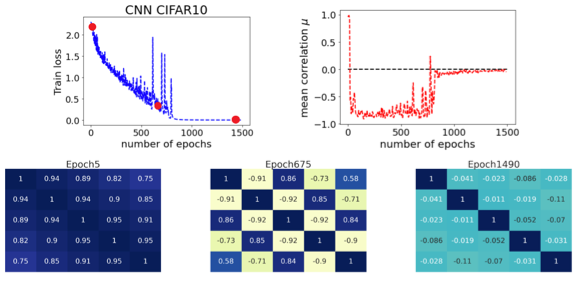
|
 Exploring Gradient Oscillation in Deep Neural Network Training.
Exploring Gradient Oscillation in Deep Neural Network Training.
Chedi Morchdi, Yi Zhou, Jie Ding, Bei Wang. 59th Annual Allerton Conference on Communication, Control, and Computing (ALLERTON), 2023. Allerton 2023 Program |

|
 Provable Identifiability of Two-Layer ReLU Neural Networks via LASSO Regularization.
Provable Identifiability of Two-Layer ReLU Neural Networks via LASSO Regularization.
Gen Li, Ganghua Wang, Jie Ding. IEEE Transactions on Information Theory, 69(9), pages 5921-5935, 2023. DOI: 10.1109/TIT.2023.3274152. |

|
 Distributed Architecture Search Over Heterogeneous Distributions.
Distributed Architecture Search Over Heterogeneous Distributions.
Erum Mushtaq, Chaoyang He, Jie Ding, Salman Avestimehr. Transactions on Machine Learning Research, 2023. OpenReview:sY75NqDRk1. |
| Year 2 (2022 - 2023) | |
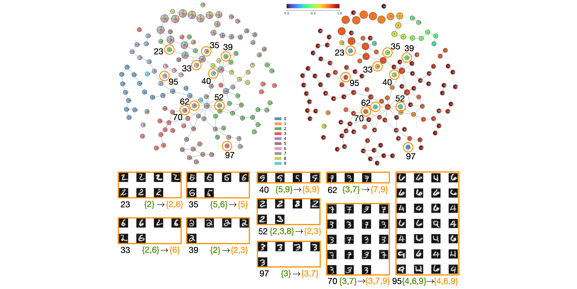
|
 Visualizing and Analyzing the Topology of Neuron Activations in Deep Adversarial Training.
Visualizing and Analyzing the Topology of Neuron Activations in Deep Adversarial Training.
Youjia Zhou, Yi Zhou, Jie Ding, Bei Wang. Topology, Algebra, and Geometry in Machine Learning (TAGML) Workshop at ICML, 2023. OpenReview:Q692Q3dPMe. |
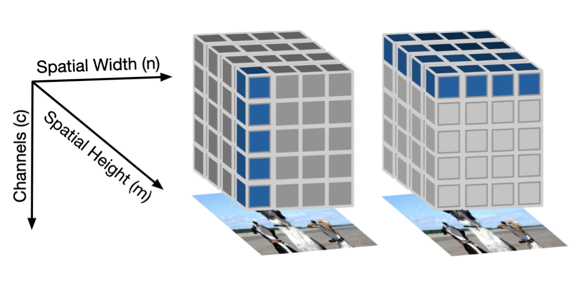
|
 Experimental Observations of the Topology of Convolutional Neural Network Activations.
Experimental Observations of the Topology of Convolutional Neural Network Activations.Emilie Purvine, Davis Brown, Brett Jefferson, Cliff Joslyn, Brenda Praggastis, Archit Rathore, Madelyn Shapiro, Bei Wang, Youjia Zhou. Proceedings of the 37th AAAI Conference on Artificial Intelligence (AAAI), 2023. DOI: 10.1609/aaai.v37i8.26134 arXiv:2212.00222 |
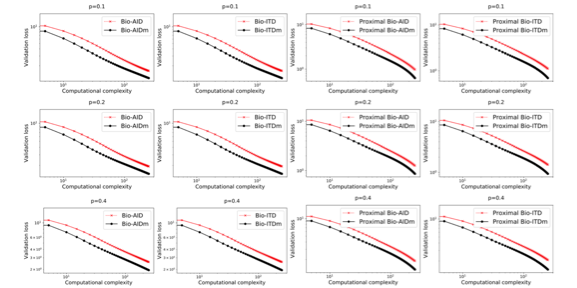
|
 An Accelerated Proximal Algorithm for Regularized Nonconvex and Nonsmooth Bi-level Optimization.
An Accelerated Proximal Algorithm for Regularized Nonconvex and Nonsmooth Bi-level Optimization.
Ziyi Chen and Bhavya Kailkhura, Yi Zhou. Machine Learning, 112(5), pages 1433-1463, 2023. DOI:10.1007/s10994-023-06329-6 |
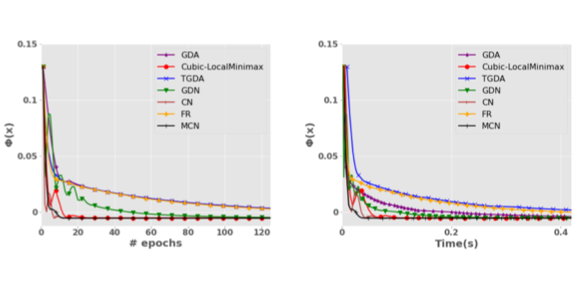
|
 A Cubic Regularization Approach for Finding Local Minimax Points in Nonconvex Minimax Optimization.
A Cubic Regularization Approach for Finding Local Minimax Points in Nonconvex Minimax Optimization.
Ziyi Chen, Zhengyang Hu, Qunwei Li, Zhe Wang, Yi Zhou. Transactions on Machine Learning Research, 2023. OpenReview:jVMMdg31De arXiv:2110.07098 |
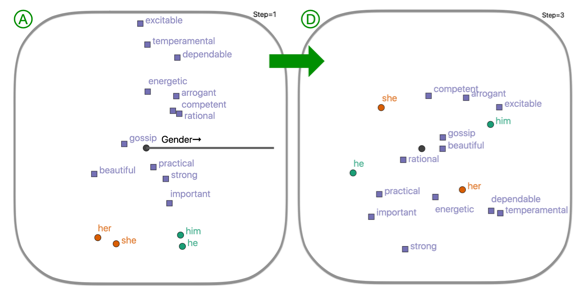
|
 VERB: Visualizing and Interpreting Bias Mitigation Techniques for Word Representations.
VERB: Visualizing and Interpreting Bias Mitigation Techniques for Word Representations.
Archit Rathore, Sunipa Dev, Jeff M. Phillips, Vivek Srikumar, Yan Zheng, Chin-Chia Michael Yeh, Junpeng Wang, Wei Zhang, Bei Wang. ACM Transactions on Interactive Intelligent Systems, 2023. DOI: 10.1145/3604433 arXiv:2104.02797. |
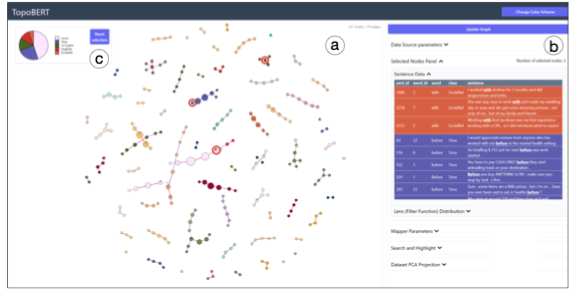
|
 TopoBERT: Exploring the Topology of Fine-Tuned Word Representations.
TopoBERT: Exploring the Topology of Fine-Tuned Word Representations.
Archit Rathore, Yichu Zhou, Vivek Srikumar, Bei Wang. Information Visualization, 22(3), pages 186-208, 2023. DOI: 10.1177/14738716231168671 |
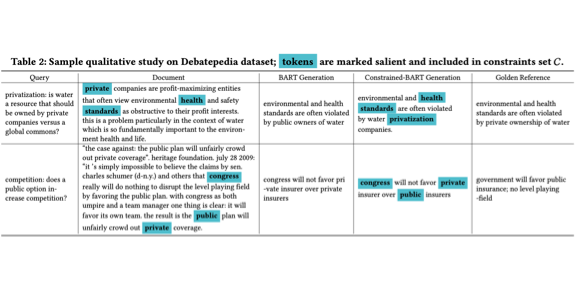
|
 A Lightweight Constrained Generation Alternative for Query-focused Summarization (Short Paper).
A Lightweight Constrained Generation Alternative for Query-focused Summarization (Short Paper).
Zhichao Xu, Daniel Cohen. Proceedings of the 46th International ACM SIGIR Conference on Research and Development in Information Retrieval (SIGIR), 2023. DOI: 10.1145/3539618.3591936 arXiv:2304.11721 |
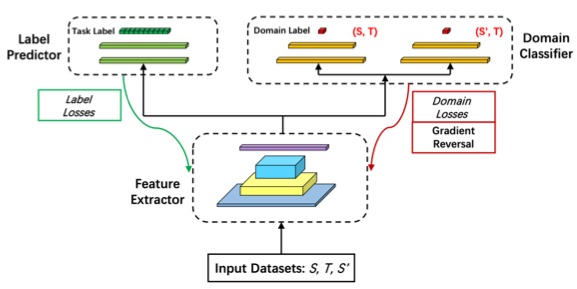
|
 Assisted Unsupervised Domain Adaptation.
Assisted Unsupervised Domain Adaptation.
Cheng Chen, Jiawei Zhang, Jie Ding, Yi Zhou. Proceedings of the IEEE International Symposium on Information Theory (ISIT), 2023. |
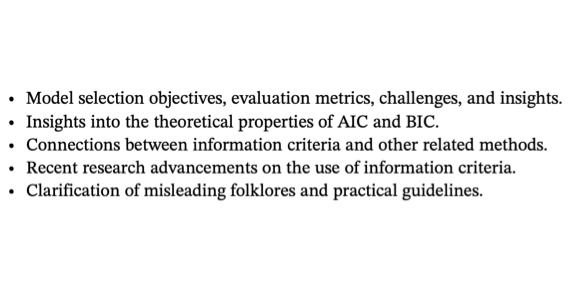
|
 Information Criteria for Model Selection.
Information Criteria for Model Selection.
Jiawei Zhang, Yuhong Yang, Jie Ding Wiley Interdisciplinary Reviews: Computational Statistics, pages e1607, 2023. |
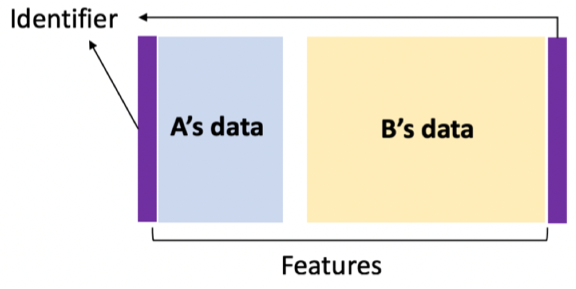
|
 Parallel Assisted Learning.
Parallel Assisted Learning.
Xinran Wang, Jiawei Zhang, Mingyi Hong, Yuhong Yang, Jie Ding. IEEE Transactions on Signal Processing, 70, pages 5848-5858, 2022. |
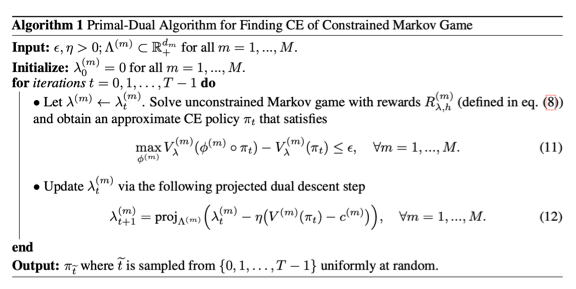
|
 Finding Correlated Equilibrium of Constrained Markov Game: A Primal-Dual Approach.
Finding Correlated Equilibrium of Constrained Markov Game: A Primal-Dual Approach.Ziyi Chen, Shaocong Ma, Yi Zhou. Advances in Neural Information Processing Systems (NeurIPS), 35, pages 25560-25572, 2022. Online: NeurIPS 2022 OpenReview:2-CflpDkezH |
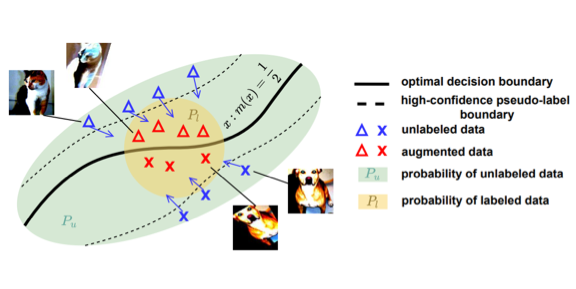
|
 SemiFL: Communication Efficient Semi-Supervised Federated Learning with Unlabeled Clients.
SemiFL: Communication Efficient Semi-Supervised Federated Learning with Unlabeled Clients.
Enmao Diao, Jie Ding, Vahid Tarokh. Advances in Neural Information Processing Systems (NeurIPS), 35, pages 17871-17884, 2022. Online: NeurIPS 2022 OpenReview:HUjgF0G9FxN |
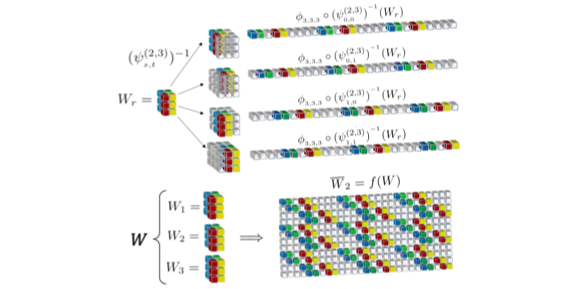
|
 The SVD of Convolutional Weights: A CNN Interpretability Framework.
The SVD of Convolutional Weights: A CNN Interpretability Framework.
Brenda Praggastis, Davis Brown, Carlos Ortiz Marrero, Emilie Purvine, Madelyn Shapiro, Bei Wang. Manuscript, 2022. arXiv:2208.06894. |
| Year 1 (2021 - 2022) | |
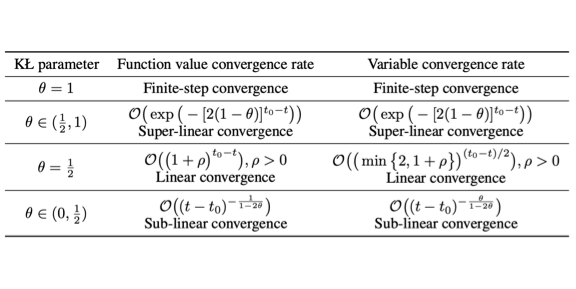
|
 Proximal Gradient Descent-Ascent: Variable Convergence under KL Geometry.
Proximal Gradient Descent-Ascent: Variable Convergence under KL Geometry.
Ziyi Chen, Yi Zhou, Tengyu Xu, Yingbin Liang. International Conference on Learning Representations (ICLR), 2021. Publisher: ICLR 2021 |
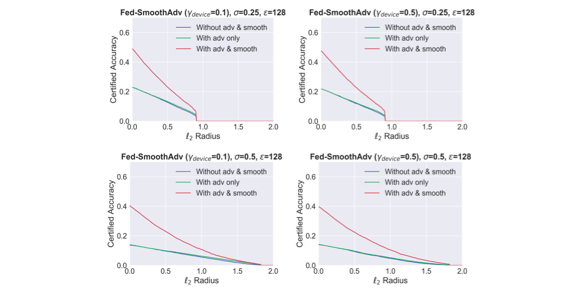
|
 Certifiably-Robust Federated Adversarial Learning via Randomized Smoothing.
Certifiably-Robust Federated Adversarial Learning via Randomized Smoothing.
Cheng Chen, Bhavya Kailkhura, Ryan Goldhahn, Yi Zhou. IEEE 18th International Conference on Mobile Ad Hoc and Smart Systems (MASS), 2021. DOI: 10.1109/MASS52906.2021.00032 |
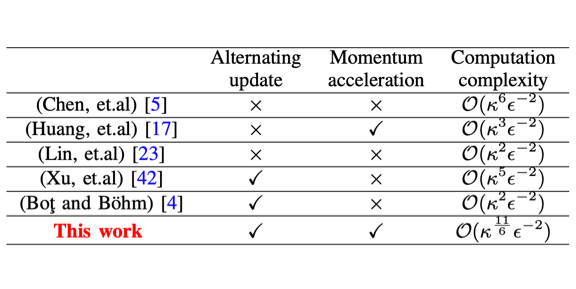
|
 Accelerated Proximal Alternating Gradient-Descent-Ascent for Nonconvex Minimax Machine Learning.
Accelerated Proximal Alternating Gradient-Descent-Ascent for Nonconvex Minimax Machine Learning.
Ziyi Chen, Shaocong Ma, Yi Zhou. IEEE International Symposium on Information Theory (ISIT), 2022. |
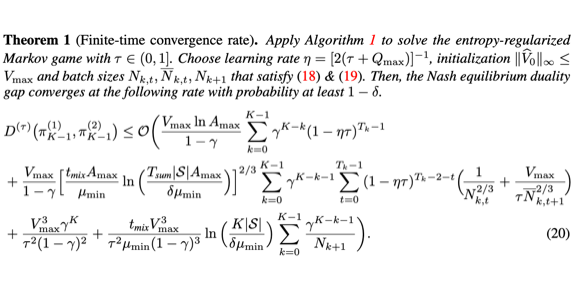
|
 Sample Efficient Stochastic Policy Extragradient Algorithm for Zero-Sum Markov Game.
Sample Efficient Stochastic Policy Extragradient Algorithm for Zero-Sum Markov Game.
Ziyi Chen, Shaocong Ma, Yi Zhou. International Conference on Learning Representations (ICLR), 2022. Publisher: ICLR 2022 |
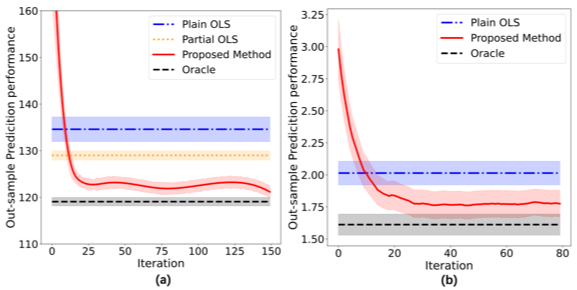
|
 Mismatched Supervised Learning.
Mismatched Supervised Learning.
Xun Xian, Mingyi Hong, Jie Ding. IEEE International Conference on Acoustics, Speech, & Signal Processing (ICASSP), 2022. DOI: 10.1109/ICASSP43922.2022.9747362 |
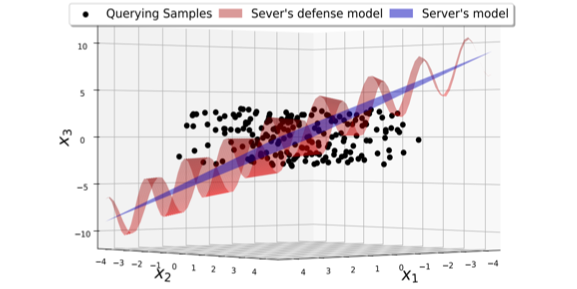
|
A Framework for Understanding Model Extraction Attack and Defense.
Xun Xian, Mingyi Hong, Jie Ding. Manuscript, 2022. arXiv:2206.11480 |
|
|
|
Presentations, Educational Development and Broader Impacts |
|
|
| Year 4 (2024 - 2025) |
|
| Year 3 (2023 - 2024) |
|
| Year 2 (2022 - 2023) |
|
| Year 1 (2021 - 2022) |
|
|
|
|
|
Students |
|
|
|
Current Students Xinyuan Yan (CS PhD, Fall 2021 - present), University of Utah. Dhruv Meduri (CS PhD, Fall 2023 - present), University of Utah. Tushar Jain (CS PhD, Fall 2024 - present), University of Utah. Former Students Youjia Zhou (CS PhD, Fall 2021 - Spring 2023, graduated), University of Utah. Archit Rathore (CS PhD, Fall 2021 - Summer 2022, graduated), University of Utah. Khawar Murad Ahmed (CS PhD, Spring 2022, lab rotation), University of Utah. Cheng Chen (ECE PhD), University of Utah Ziyi Chen (ECE PhD), University of Utah Xun Xian (ECE PhD), University of Minnesota Jiaying Zhou (Statistics PhD), University of Minnesota |
|
|
|
Acknowledgement |
|
|
|
This material is based upon work supported or partially supported by the National Science Foundation under Grant No. 2134223 and No. 2134148. |
|
|